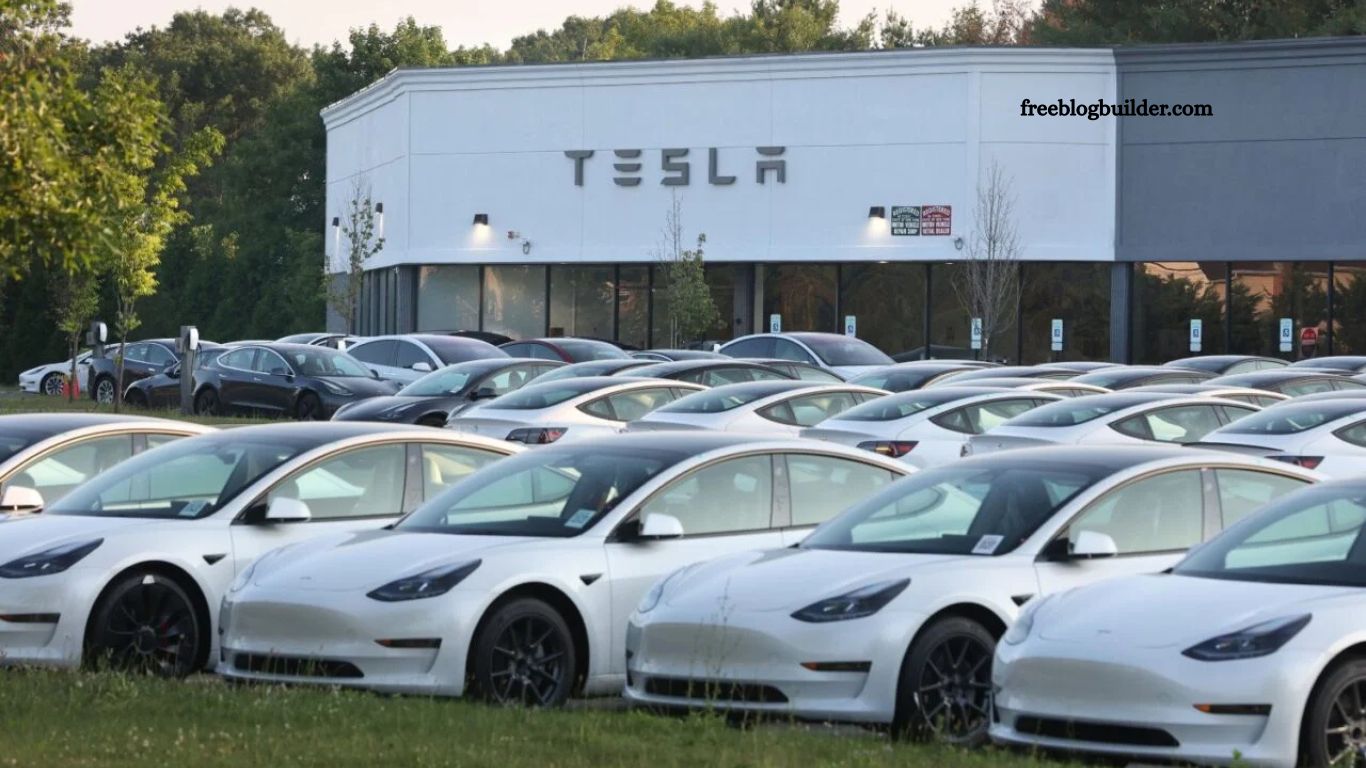America’s EV Tax Credit Is On experiencing a dramatic surge as buyers rush to secure federal tax credits before they expire. Tesla’s delivery timelines for popular models have skyrocketed from a few weeks to nearly six months within just 48 hours, highlighting an unprecedented spike in demand. This frenzy reflects a last-minute push by consumers eager to save thousands on new electric vehicles before the incentives vanish.
Industry experts predicted this short-term sales EV tax boom, describing it as a final gold rush for EV buyers. However, while the surge temporarily boosts sales, it may also trigger a sharp downturn for the industry once the tax credits disappear. This high-stakes period marks a critical moment for the future of electric vehicles in the U.S. market.
Read More: Ultimate Guide to Saving Money on Home Essentials and Health on a Budget
The Deadline Driving the EV Buying Frenzy
The rush stems from the federal EV tax credits set to expire on September 30, part of the Biden-era Inflation Reduction Act. These credits offer $7,500 for new EVs and $4,000 for used models, making electric cars more affordable for many buyers. Losing them will raise prices instantly, pricing out some first-time buyers.
Automakers anticipated this spike, and Tesla’s recent delivery delays confirm it. Delivery estimates for most Model 3 and all Model Y variants jumped from weeks to four to six months in just days, signaling rapidly dwindling inventory amid soaring demand.
The Crucial Catch: Delivery Must Be Completed
Buyers face high stakes due to a key rule: to qualify for the federal tax credit, you must take delivery of the EV—not just place an order—by the September 30 deadline. Tesla and CEO Elon Musk are stressing this urgency.
On X, Tesla warned, “$7,500 Federal Tax Credit ends Sept 30. You must take delivery—not just order—to qualify.” Musk echoed the alert, highlighting the “important re-timing of vehicle delivery.” The message is clear: delays could cost buyers their tax credit.
Tesla Capitalizes on the Surge
As demand spikes, Tesla is seizing the moment. This week, the company raised Model Y lease prices by up to 14% and ended free upgrade incentives for both Model Y and Model 3. Buyers must order by August 11 (Model Y) or August 18 (Model 3) to lock in current deals.
These abrupt changes sparked frustration among customers. One user on X criticized Tesla for poor communication during this critical period.
After a tough second quarter with deliveries down 13.5% and revenue dropping 16.3% amid brand challenges this sales rush offers a welcome boost. Yet, analysts warn Tesla is merely pulling forward demand ahead of the post-incentive market test starting October 1.
Frequently Asked Questions
When do the federal EV tax credits expire?
The federal EV tax credits expire on September 30, 2025. Buyers must take delivery of their vehicle by this date to qualify.
How much is the federal EV tax credit worth?
The credit offers up to $7,500 for new electric vehicles and $4,000 for used EVs.
Does placing an order before the deadline guarantee the tax credit?
No. You must take delivery of the vehicle by September 30 to claim the credit.
Why are Tesla delivery times so long right now?
Tesla delivery estimates have extended to 4-6 months due to a surge in demand as buyers rush to secure the tax credit before it expires.
Will EV prices increase after the tax credits end?
Yes, prices effectively rise by the amount of the credit around $7,500 after the expiration date.
Conclusion
The EV tax credit deadline has ignited an unprecedented buying surge, reshaping the electric vehicle market in the short term. While Tesla and other automakers benefit from this last-minute rush, the industry faces uncertainty once incentives expire. Buyers must act quickly and ensure timely delivery to maximize savings. As the market prepares to stand independently after September 30, the coming months will reveal how resilient the EV sector truly is beyond government support and temporary demand spikes.


